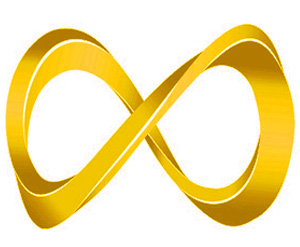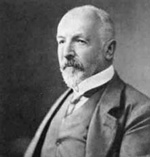Infinity through dark glasses
Even something as straightforward as mathematics can give us a glimpse of things our finite minds find hard to grasp—but they’re real nonetheless.

There are some deep issues about God, eternity and the like which, while not logical paradoxes,1 are mind-stretchingly outside of our normal experience. They include: God’s triune nature; what the spiritual realm might consist of; how He can be infinite, and yet at the same time personal; and more.
Activity outside of time
One could also mention the mysterious fact that God can be outside of time (as its Creator) and yet engage in activities which to us are always time-sequential. For example, John’s Gospel repeatedly indicates that there was love between the three persons of the Godhead prior to creation. But it is generally understood that, before this space-matter-time continuum was created, God was existing in a timeless eternity, mirroring an eternity yet future. Love requires some form of expression, and generally communication. Yet our experience of communication is one word after another, i.e. a sequence in time. In fact, in our time-bounded cosmos, even wordless expressions of love have a beginning and ending, both of which involve time. So how can there be love in timelessness?
Similar mind barriers arise, too, when we start to think deeply about the concept of ‘infinity’, even though this might appear at first glance to be much more straightforward. It includes the concepts that God is infinitely ‘old’ (eternal), infinitely knowledgeable (omniscient) and infinitely powerful (omnipotent).
It is both common and reasonable to resort to the notion that our finite minds simply can’t be expected to have the ‘processing power’ to grapple with such things, any more than a goldfish can be expected to grapple with genetic algorithms, or a cat comprehend calculus. Skeptical materialists,2 of course, will generally paint that as a copout. To them, it just shows that the concepts themselves are irrational, hence unreal.
The mysteries of modern physics
Increasingly, however, mankind’s God-ordained3 investigations are discovering things which show that even this present world is far more mysterious than we generally think. These include the way in which time actually flows at different speeds in different parts of a gravity field.4 Several creationist physicists have made use of this experimentally proven concept (without adjusting for it, GPS locations would drift by metres each day). Because of it, it becomes both feasible and understandable for light to have reached us from the most distant stars in a universe that is 6,000 years old (by Earth clocks).5

Then there is the field of physics known as quantum mechanics (QM). QM is immensely successful and useful, and at the same time stunningly mysterious and counter-intuitive.6 Experiments seem to show, for example, that a single particle can go through two slits at once, provided there is no way it can be ‘observed’ to do so.
When the cleverest physicists try to make sense of it, they start to come up with notions so bizarre that one could almost question their grip on reality. In all seriousness, many of them maintain that the best way to understand what happens in QM experiments is to invoke the idea of ‘parallel universes’. This means that when something happens in this universe, all other possibilities are covered in other universes. Say for instance that you were to roll a ‘6’ on one of a pair of dice (rather than any of the other five numbers), then at that moment five alternative (‘parallel’) universes spring into existence (or have already existed among an infinity of such universes). That way, all of the other five numbers can come up, too—one in each universe.
That interpretation of QM is, perhaps surprisingly, fairly popular among physicists. It might be easy to dismiss it as being fairly obviously irrational. But there is no doubt that the things this idea is trying to explain include some really weird stuff. Like the observation that a particle widely separated from its ‘twin’ is instantly affected by something that happens to the other particle—regardless how far apart.
Meaning in mathematics?
Despite the weirdness of the world such things reveal, optimists might hope that some future theory could unify all these phenomena.7 They would like to be able to reduce everything to a much simpler set of mathematical expressions. This quest and its link to deeper meaning was parodied around 1980 in the science/philosophy spoof series The Hitchhiker’s Guide to the Galaxy. The universe’s ultimate supercomputer was assigned the task of finding the meaning of “life, the universe and everything”. After countless eons of number-crunching, the answer emerged as ‘42’.
But it is precisely in the field of mathematics itself, where rigorous proofs are possible, that we find evidence of an ‘irreducible complexity’ to the world. This evidence stands in bold defiance of all of our efforts to make the world understandable to our minds. The mathematician Kurt Gödel’s Incompleteness Theorem famously proved that it was impossible for mathematics (or any other system8) to formally prove or understand itself within its own rules.9
It’s as if Gödel was formalizing the idea expressed in Ecclesiastes 3:11b:
“ … he has put eternity into man’s heart, yet so that he cannot find out what God has done from the beginning to the end.”
This is often thought to refer to our hunger to understand things, especially the deep timeless truths of the way the world is and operates. It is God, the preacher says, who has placed this quest for knowledge into the hearts of humanity. But He has done things in such a way that no person is able to find out everything about His works from beginning to end. Some things are going to remain forever out of reach.
Mathematics and infinity

At least, we might have thought, mathematics has a straightforward way of handling infinity. Start counting 1,2,3,4 … and so on, and it’s not hard to see that the number you could reach is infinitely large, i.e. the number of possible numbers is ‘infinity’. There’s even a mathematical symbol for it, ∞. So this seems to offer hope that we can at least begin to comprehend the infinite characteristics of God.
But here, too, it’s more complicated than that. It turns out that mathematics reveals not just the reality of infinity, but even deeper (or greater, or higher if you like) infinities—even though that hardly seems possible at first glance. How can it do that? In all those numbers you can count, there are ‘sets’ of numbers. For example, all the even numbers, or all numbers divisible by 8, and so on. The number of such possible sets can be shown to also be ‘infinity’. But mathematician George Cantor formally proved that this ‘infinity’ is actually greater than the first ‘infinity’ mentioned above. And that’s not the end of it; by looking at this infinite number of sets, there is a higher infinity again above that. In other words, there is a ladder, or infinite hierarchy, of infinities. And above and beyond that still, mathematicians are catching glimpses of something so high above this ‘infinity of infinities’ that they themselves are saying that it will probably never be approachable by the normal laws of mathematics.10
Contemplating all this should make even the most hardened materialist pause and draw breath. Even given our limitations, our finite minds can, it seems, use the tools of mathematics to confirm that there are things that, though real, are out of our conceptual reach. In this way, we are allowed at least a very tiny glimpse into some of the eternal and unsearchable depths of God and the world He made. But no more than a glimpse; it’s as if we have discovered a sign saying, ‘There are wondrous things beyond this point, but for you it’s this far, and no farther for now.’
As the Apostle Paul put it, talking about our present existence, before we are enlightened in that new creation: “For now we see through a glass, darkly; but then face to face: now I know in part; but then shall I know even as also I am known” (1 Corinthians 13:12). How tremendous that we can, right now, through Christ, truly know the infinite-personal Creator God. We can know the One who knows all about all of these things—and all about each one of us—already.
References
- Logical paradoxes (e.g. questions of whether God can create a married bachelor, or make a rock too heavy for Him to lift) are not mysteries potentially capable of resolution by a greater mind, but can be dismissed as meaningless non-issues/absurdities. See also If God can do anything, then can He make a being more powerful than Himself? What does God’s omnipotence really mean? Return to text.
- Those who believe that matter/energy is the only reality—there is no supernatural. Return to text.
- Genesis 1:28—the Dominion Mandate. Return to text.
- Predicted and explained by Einstein’s General Relativity (GR). Return to text.
- See Hartnett, J., Starlight, Time, and the New Physics, Creation Book Publishers, 2007; and Humphreys, R., Starlight and Time, Master Books, 1994, which both have models based on time dilation (both at creation.com/store). Return to text.
- Einstein himself always had difficulty with QM, which is notoriously resistant to reconciling with GR. Return to text.
- In fact, the search is on for such a TOE (theory of everything). It is meant to unite QM and GR. So far, rather than heading in the direction of simplicity, it has only succeeded in throwing up further bizarre notions such as string theory. See Bates, G., Is string the next big thing?, Creation 30(2):32–34, 2008. Return to text.
- Of equal or greater complexity to arithmetic. The theorem is also commonly stated as that there are true statements in the system that are not provable from the axioms. Return to text.
- Elwes, R., It doesn’t add up, New Scientist 2773:34–38, 14 August 2010; p. 36. It has been taken to mean that perhaps our brains are not capable of fully understanding themselves, i.e. limits to the neuroscientific endeavour. Return to text.
- Ref. 9, p. 38, A ladder of infinities. Return to text.



Readers’ comments
Comments are automatically closed 14 days after publication.